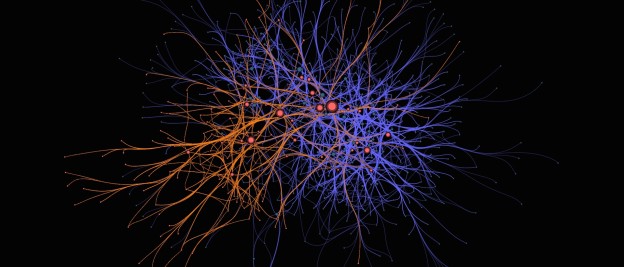Masters of Networks 3 (more info) kicks off in a month. We at Wikitalia are hard at work to prepare the data; what can we learn by looking at online communities as networks of interactions? Is there a “signature of collaboration”, some characteristic that you can measure, like you would take a person’s temperature to figure out if she is well? The question is very exciting; and we do not believe it can be addressed by a small cadre of specialist. Instead, we have designed MoN3 as a natively interdisciplinary event, where online community managers, networks scientists and collective intelligence researchers work together to generate and formalize intuitions. The first batch of people who answered the call is super interesting: they come from all over the world, and represent an incredible talent pool.
Community managers:
- Jean-Michel Cornu (Imagination4People – Canada)
- Lee-Sean Huang (Purpose – USA)
- Noemi Salantiu (Edgeryders – UK)
- Jasminko Novak (EIPCM – Germany)
- Rosa Strube (CCSCP – Germany)
Network/Data Scientists:
- Guy Melançon (University of Bordeaux- France)
- Benjamin Renoust (NII – Japan)
- Raffaele Miniaci (University of Brescia – Italy)
- Matteo Fortini (University of Bologna – Italy)
- Giovanni Ponti (University of Alicante – Spain)
- Alberto Cottica (Edgeryders – UK)
Collective Intelligence researchers:
- Mark Klein (MIT – USA and University of Zurich – Switzerland)
- Benoit Gregoire (Imagination4People – Canada)
- Marc-Antoine Parent (Imagination4People – Canada)
- Luca Mearelli (Wikitalia – Italy)
- Marta Arniani (Sigma Orionis – France)
- Fabrizio Gasparetto (Oxway – Italy)
- Mathias Becker (EIPCM – Germany)
Practical info
MoN3 takes place in Rome, on March 10-11 2015. We will work out of the stunning location of Hotel Capo D’Africa, a stone’s throw from the Colosseum. The working language is English. Participation is free (and we throw in the lunch and as much coffee as you can drink), but we have to cap it at 20 attendees or so: this means we still have a few places. First come, first served: registration can be done here. If you think you absolutely need to attend, but cannot afford it, let us know and we will see if we can help.

